May 2025 Newsletter: Climate Finance Edition
In this final finance-focused edition of the UrbanShift newsletter, we reflect on four years of empowering local governments to advance local sustainable urban infrastructure. Maryke van Staden, Director of ICLEI’s carbonn Climate Center, highlights key milestones, including the 10th anniversary of the TAP project pipeline. We also share what’s still to come as UrbanShift enters its final phase.

Dear friends and colleagues,
As UrbanShift draws to a close this year, this final finance edition of our newsletter offers a moment to reflect on what we’ve achieved and what lies ahead. When UrbanShift launched four years ago, we placed finance at the heart of our efforts to support sustainable and integrated urban development. We’re proud of what we’ve accomplished in the years since: Our shared efforts have pushed boundaries, expanded access to urban climate finance, and strengthened the capacities of local governments to turn ambition into action.
Through its multi-pronged approach, UrbanShift has helped dozens of cities around the world make real progress toward financing sustainable urban infrastructure. With targeted support, hands-on training, and tailored advice, we have strengthened project pipelines and helped local governments navigate complex finance ecosystems. A recent blog with André da Vila (ICLEI), Jessy Appavoo (C40), and Sharon Gil (UNEP) captured reflections on UrbanShift's efforts to expand access to finance, which we encourage you to read.
A cornerstone of UrbanShift’s finance work, ICLEI’s Transformative Actions Program (TAP), has also reached a milestone. Celebrating its 10th anniversary, TAP has supported hundreds of local and regional governments around the globe to develop and finance transformative infrastructure projects – and it will continue to do so well into the future. The 2025 TAP Call for Projects opened on the 21st of May 2025 and remains open through September 2025.
Alongside these finance efforts, much is happening in UrbanShift! In recent months, the program has continued to foster learning and collaboration across the globe—from Geospatial Data Labs in Bitung and Puducherry to a workshop on waste management in Freetown to our global webinars on nature-positive tourism and nature-based solutions for flooding and heat. Recognizing that multilevel governance is essential to enabling sustainable infrastructure at the local level, high-level dialogues in Rwanda and Costa Rica brought together national and local governments to align climate targets and financing priorities. And there's more on the horizon: The second National Local Dialogue for Brazil will unfold on June 10, and we're looking forward to the China City Academy in Chengdu in early July.
Though this is UrbanShift’s final finance newsletter, our collective work is far from over. As we transition into the next chapter, the lessons learned and connections built through this program will continue to inform and inspire action across the UrbanShift community and beyond. Thank you for being part of this journey—and for your continued efforts to finance a more sustainable, climate-resilient urban future.
Maryke van Staden / Director of Business Development & carbonn Climate Center, ICLEI — Local Governments for Sustainability
LOOKING BACK AT URBANSHIFT'S FINANCE SUPPORT FOR CITIES
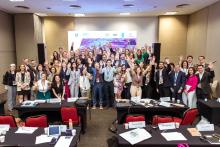
From the very beginning of the program, finance has been core to UrbanShift. Lack of access to finance is one of the major roadblocks cities face in implementing sustainable urban development at the necessary scale and pace to meet our pressing challenges. Over the past five years, UrbanShift has worked hand-in-hand with cities to build their capacity to access and make productive use of urban climate finance. On our blog, C40's Jessy Appavoo, ICLEI's André Almeida da Vila, and UNEP's Sharon Gil share what this support has looked like and the impact our work has had on cities. Read more.
NEWS & UPDATES
Celebrate 10 Years of TAP
To mark the 10th anniversary of the Transformative Actions Program (TAP), ICLEI invites city representatives and subnational practitioners to a webinar celebrating the launch of the 2025 TAP Call for Projects. Mayors and other city representatives will share successful projects, achievements, and discuss future developments in supporting sustainable infrastructure projects. Follow ICLEI to learn more.
Learn How Green Bonds are Shaping the Future of Sustainable Investment
Green bonds and sustainability-linked financing are key drivers in the global transition to a net zero, climate-resilient economy. With rising investor demand and evolving regulatory frameworks, these financial instruments can unlock much-needed infrastructure investment opportunities for cities and nations to finance transformative solutions. Read more at ICLEI CityTalk.
Strengthen Your Understanding of Urban Revenue Generation
UN-Habitat’s free, self-paced course on "Own Source Revenue for Local Governments" guides cities in how to expand local revenue through improving subnational tax reform and administration. In 4–6 hours, participants can learn how to create action plans for sustainable revenue. Learn more and enroll at UN-Habitat.
Explore the Gendered Impacts of Urban Climate Finance
As cities grow and climate risks rise, urban climate finance must address gender disparities to avoid reinforcing inequalities. Women, disproportionately affected by climate shocks yet often excluded from decision-making and finance, need targeted inclusion. This blog highlights the urgency of gender-responsive urban climate strategies beyond symbolic recognition like International Women’s Month. Read more at Cities Climate Finance Leadership Alliance.
Read how Multilateral Development Banks are Planning to Scale Sustainable Investment in Cities
During the recent World Bank and IMF 2025 Spring Meetings, multilateral development banks convened to discuss strategies for enhancing climate finance access for cities. This roundtable represented a significant step in bridging the gap between current levels of urban climate investment and what cities require. Read more at C40.
Learn how the Local2030 Coalition is Advancing the Need for Urban Climate Finance
With the goal of accelerating localization of the SDGs through helping cities overcome finance barriers, the Local2030 Coalition has release a robust set of recommendations in advance of the Fourth International Conference on Financing for Development (FfD4) from June 30 through July 3. Read more at Local2030.
LEARN HOW TO ACCELERATE YOUR CITY’S ACCESS TO URBAN CLIMATE FINANCE
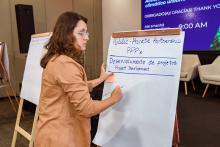
Access to urban climate finance is essential for shifting our cities toward sustainability and equity. The UrbanShift Online City Academy offers eight free, self-paced courses on essential urban planning topics—including accessing urban climate finance. With this course, you will learn in-depth about the planning, design, and financing processes behind climate-resilient urban infrastructure projects, and how to ensure they can attract the funding they need to be realized. Enroll in the finance course here, and explore the entire Online City Academy at shiftcities.org.
CLIMATE FINANCE RESOURCES
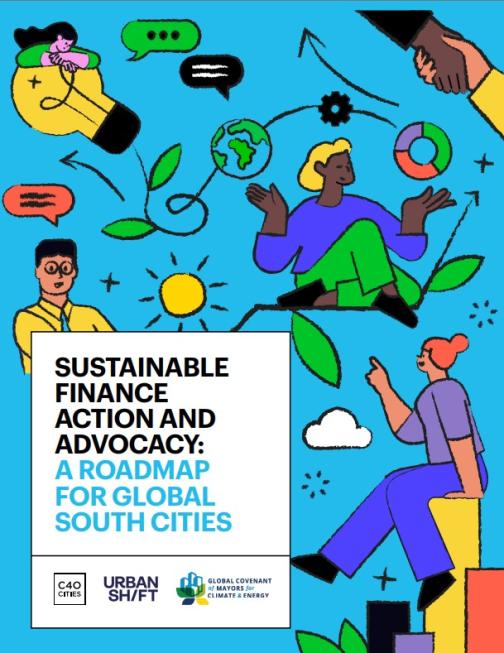
Sustainable Finance Action and Advocacy: A Roadmap for Global South Cities
Commissioned by C40 Cities, the Global Covenant of Mayors for Climate and Energy (GCoM), and UrbanShift, this Roadmap provides evidence-backed insights, policy recommendations, and tools for Global South city mayors.
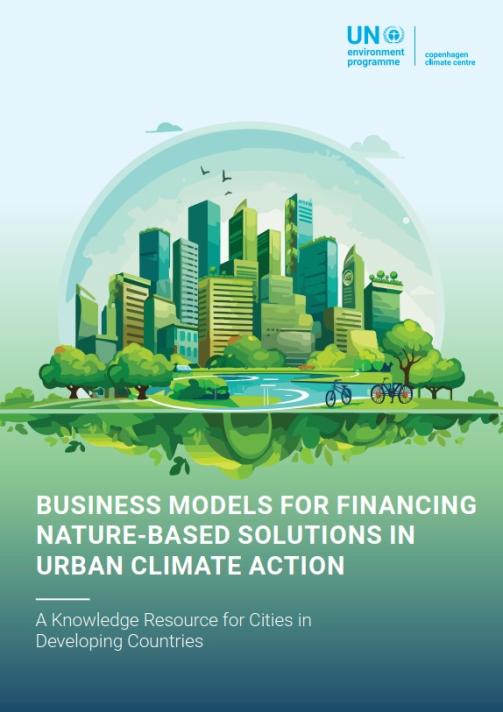
Business Models for Financing Nature-Based Solutions in Urban Climate Action
This publication serves as a comprehensive guide to financing and developing business models for Nature-based Solutions (NbS) addressing climate challenges in urban areas.
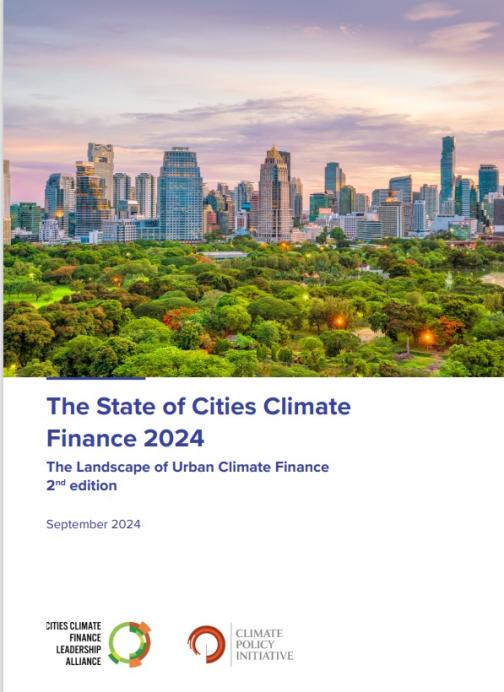
The State of Cities Climate Finance 2024
The 2024 State of Cities Climate Finance report (SCCFR) provides the most comprehensive assessment of urban climate flows and needs globally. It aims to inform action on mobilizing finance for city-level climate action at scale by 2030.
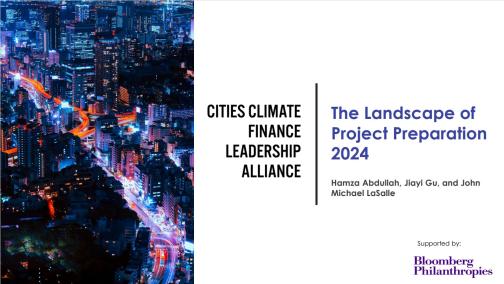
The Landscape of Project Preparation 2024
Project Preparation Facilities support cities in developing bankable, investment-ready projects, typically from a project’s concept, design, or scoping stage up to the financial close.
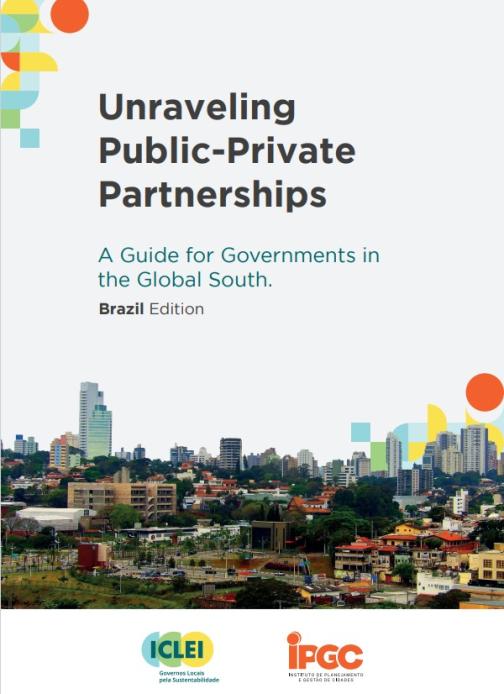
Unraveling Public-Private Partnerships
The goal of this toolkit is to provide practical tools so that governments in the Global South, starting with Brazil, can more effectively address the challenges related to climate change, social inequalities and inadequate infrastructure.
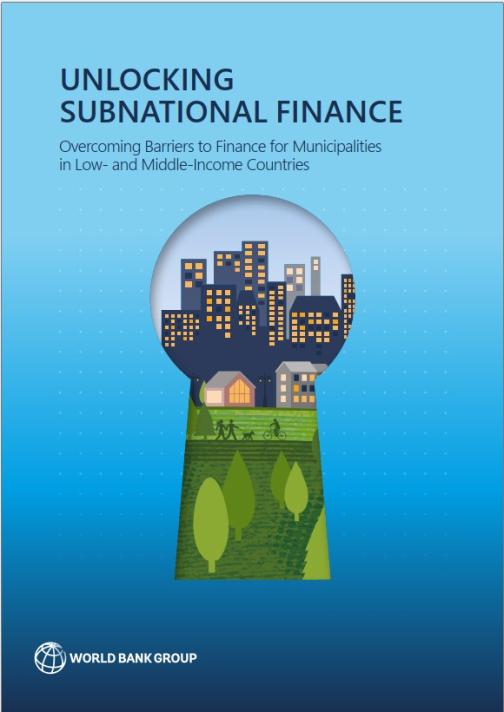
Unlocking Subnational Finance: Overcoming Barriers to Finance for Municipalities in Low- and Middle-Income Countries
This report is intended to address this development challenge. It provides a snapshot of the volume of finance flowing to municipalities in developing countries, showing that such flows have been extremely restricted in recent years.
CLIMATE FINANCE OPPORTUNITIES
Transformative Actions Program: 2025 Call
Celebrating its 10th anniversary in 2025, the Transformative Actions Program (TAP) is a global initiative led by ICLEI and supported by a consortium of specialized partners. TAP helps local and regional governments transform their sustainable infrastructure ideas into investment-ready projects aligned with the SDGs. Through its annual calls, TAP screens submitted projects and provides tailored feedback to those with high transformative potential. Selected projects are connected to project preparation facilities and financial partners to support their development and implementation. Submit now through September 30, 2025.
The City Climate Finance Gap Fund
The Gap Fund –implemented by the World Bank and European Investment Bank– offers technical assistance for cities in low and middle-income countries for early or underfunded stages of project identification and preparation. Applications can be submitted throughout the year here.
Cities Development Initiative for Asia (CDIA)
CDIA is a multi-donor trust fund managed by the Asian Development Bank (ADB). As a project preparation facility, it helps secondary cities in Asia and the Pacific prepare bankable and sustainable infrastructure investments. Secondary cities from Bangladesh, Philippines, Viet Nam, Uzbekistan, Indonesia, India, Papua New Guinea, and Nepal are eligible to apply for CDIA support at any time. Learn more.
AIPH Green City Awards
As an ongoing competition with entries open every 2 years, the Awards recognize the role of city authorities in promoting and supporting greater inclusion of plants and nature in urban environments. The Awards are designed to champion ambitious nature-orientated approaches to city design and operation. Specifically, they seek to recognize public initiatives relying on a greater use of plants and nature to create better city environments – helping to fulfil local aspirations for improved economic, social and environmental resilience. Submit now through September 15, 2025.
UPCOMING URBANSHIFT EVENTS
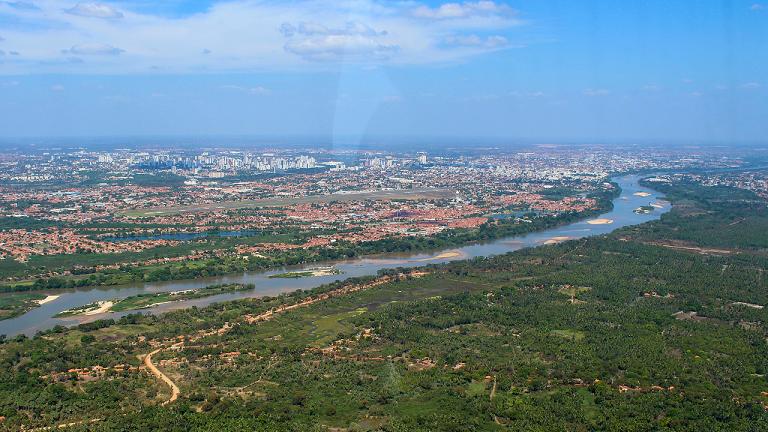
Second Brazil National-Local Dialogue
The dialogue will focus on further strengthening metropolitan and interfederative governance across three Brazilian regions.
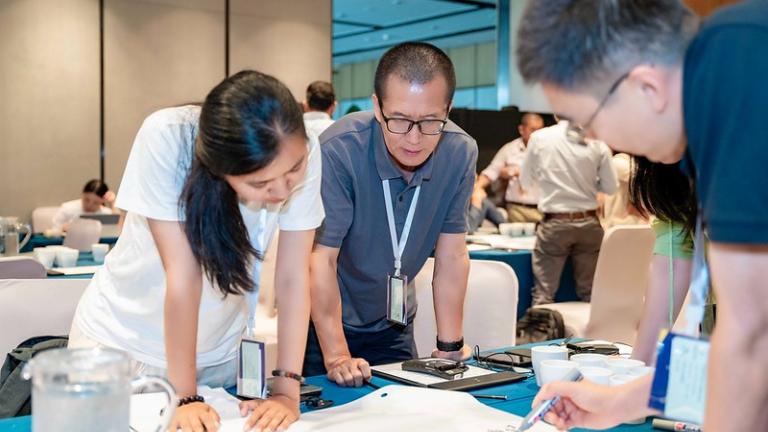
UrbanShift China City Academy
City officials engaged with regional and global experts to strengthen their knowledge and capacity to implement sustainable urban practices.
PAST EVENTS
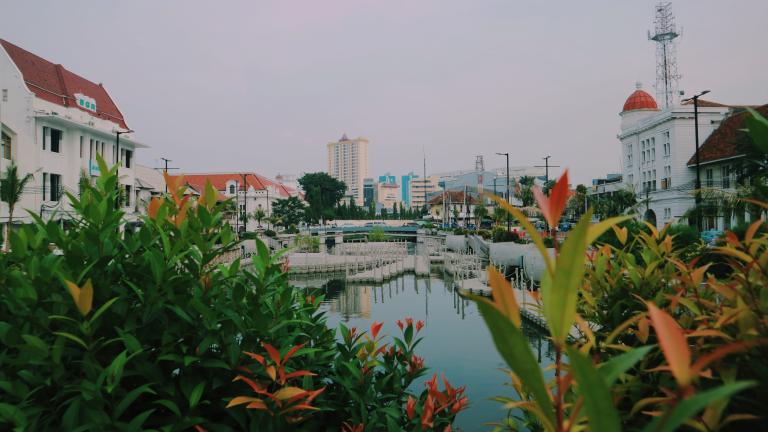
Nature-Positive Tourism: How local leadership can balance conservation and economic growth
In this ICLEI-hosted webinar, learn how cities can protect natural ecosystems while generating revenue from sustainable tourism.
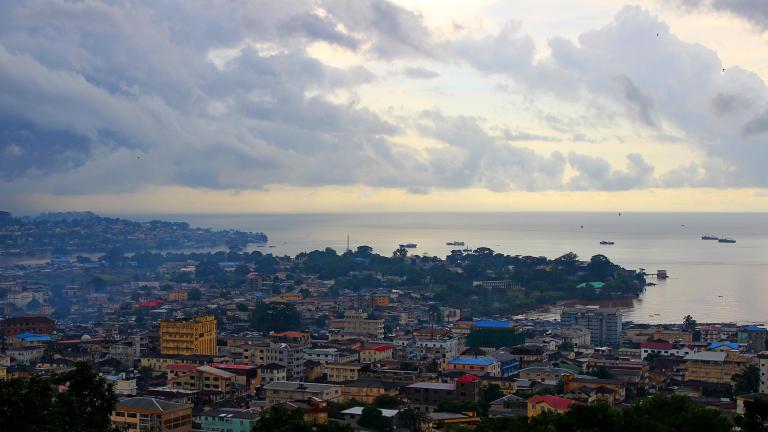
UrbanShift Workshop on Planning, Informality and Waste Management
The workshop focused on strategising actions to support the realisation of existing sustainable urban development and waste management plans.
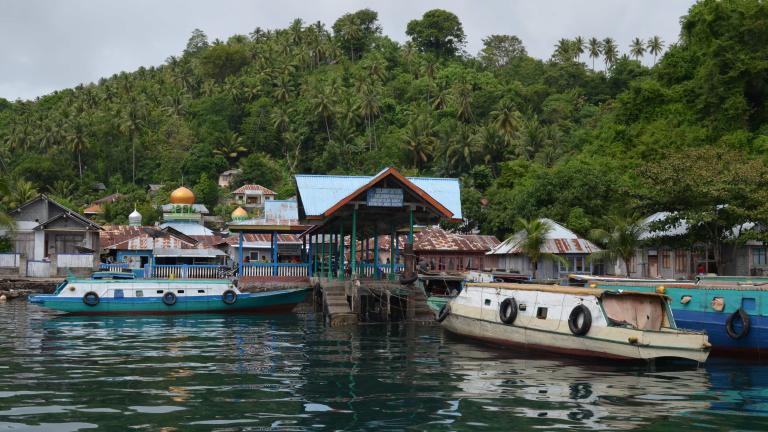
UrbanShift Geospatial Planning Lab in Bitung: Strategizing for Sustainable Economic Growth
The two-day Lab in Bitung explored how geospatial data can support sustainable urban growth and tourism, bringing together local officials and experts from WRI, ICLEI, and the World Bank.
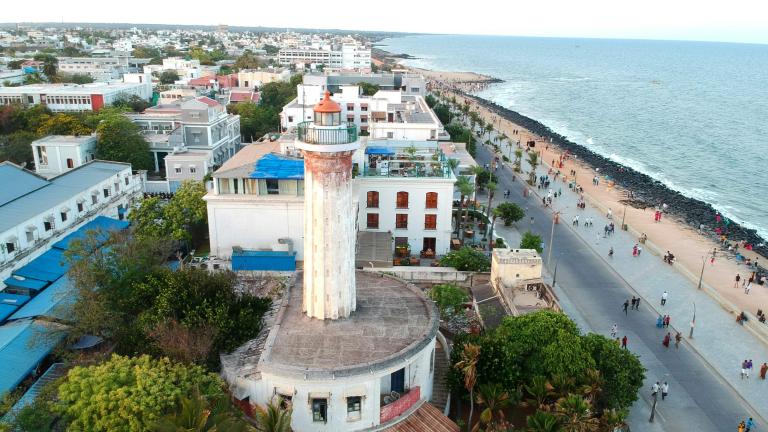
UrbanShift Geospatial Planning Lab in Puducherry: Understanding Climate Hazards and Co-Creating Resilience
For two days, key stakeholders gathered to explore how geospatial data can inform local solutions to heat, flooding, and cyclone-related risks.

Second National-Local Dialogue for Costa Rica
The dialogue brings together local and international experts to tackle urban flooding through knowledge exchange, hands-on workshops, and policy discussions.
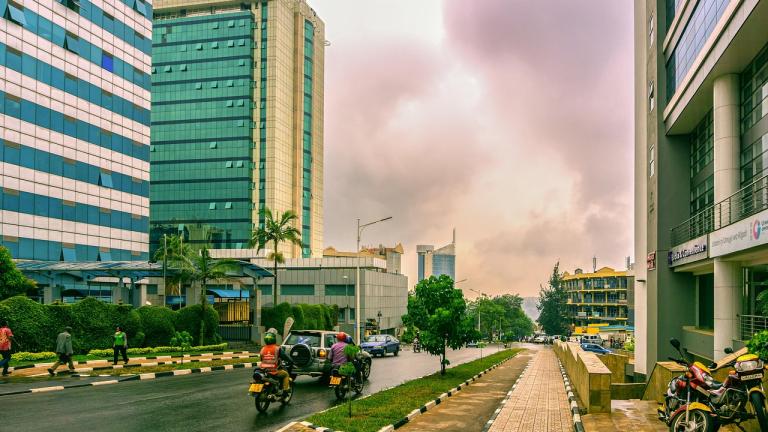
Rwanda Second Multilevel Governance Dialogue - Local Government Consultation on NDC 3.0 Development
This dialogue will strengthen local government involvement in shaping and implementing the country’s NDC 3.0, fostering national-local collaboration for ambitious climate action.
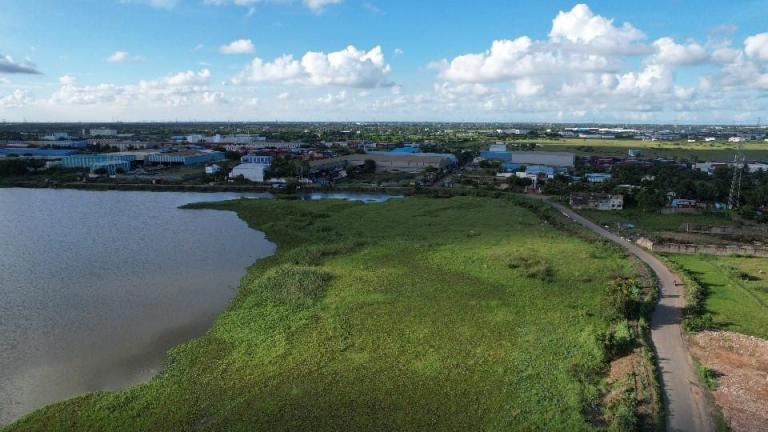
Building Capacity to Assess Urban Climate Hazards and Tackle Heat and Flooding in Cities: A Three-Part Capacity Building Training Webinar Series
This three-part webinar series offered a comprehensive training on how nature-based solutions and tools like the Climate Hazard Vulnerability Assessment framework can help cities build resilience to risks like extreme heat and flooding.
